Producer Alison Owen says it is “crazy to say the internet is going to kill off movies”.
Scroll down for full speech
Alison Owen, managing director of Ruby Film and Television, has used her keynote speech at the BFI London Film Festival to defend the art of movie storytelling and play down the threat of the internet.
Speaking at the Curzon Soho this afternoon, Owen said: “There’s many a Cassandra touting the death of the movie industry. But is that true?
“It is crazy to say the internet is going to kill off movies… The problem is not technology per se but the management of that technology – and the lack of a pervasive business model.”
Using YouTube clips such as “Charlie bit my finger”, Owen said such content was “incredibly simple” and that “people still want good stories”.
“As digital comes of age, there’s going to be more and more demand for content,” she said.
“If we can make the technology work for us, far from getting our P45’s, filmmakers are about to make millions of dollars.”
Citing reality TV and talent shows, Owen added: “They don’t scratch the itch that drama does. They don’t go to the places that only cinema does.”
Saving Mr Banks
Owen is a producer on LFF Closing Night Film Saving Mr Banks, which stars Tom Hanks as Walt Disney and Emma Thompson as PL Travers, the author of Mary Poppins.
After recounting a moving story of how she became closer to her father during production – who died before the film was completed – Owen said: “Saving Mr Banks is about fathers and daughters but it’s also about storytelling itself.
“It shows how not just audiences, not just producers, but writers use art, stories, movies to make sense of their own lives, provide order, provide meaning. And how that helps others to do the same.
“I hope we can all keep movies alive, as I believe this is a very necessary job that other innovations cannot match.
“Movies give people breathtaking dreams of other worlds, and intimate glimpses into the private spheres of lives beyond their understanding. Movies are where they keep the magic.”
Thrive during recession
Owen, who has “made a career telling the stories of extraordinary women” by producing films such as Elizabeth, Jane Eyre and The Other Boleyn Girl, also said that movies can provide escape for the public during tough economic times.
“Historically, movies are one of the few industries that thrive in a recession,” she observed.
“In a recession, people want to be told that everything is going to be okay… This is why there is a constant tension in Hollywood between studios who want happy endings and writers who want to explore the human condition. There is a time and a place for both.
“It’s only in periods like the relatively economically stable and war free ‘70s that movies about ‘important’ and philosophical topics with ambiguous endings can proliferate.”
Speech in full
‘After nourishment, shelter and companionship, stories are the things we need most in the world’
That’s a quote from Philip Pullman.
I believe that to be true. I have to, really - I’ve spent my work life so far finding stories, telling stories, making stories.
But I’ve spent my life telling those stories in the movie business. And, as we keep hearing from various dark brooding media outlets, movies are seriously under threat. There’s many a Cassandra out there touting the death of the movie industry, as we know it.
But is that true? Is our business about to collapse under the weight of all the alternative entertainment out there? Our lives are getting busier and busier, that’s for sure. Our leisure time is becoming more precious than ever. Most households now have both parents working. Do we really have time to go to the movies any more? Or even watch them at home? Would we prefer to collapse on the couch and watch The Only Way is Essex, or playGrand Theft Auto?
The first point to make is that to my mind it is crazy to say the Internet is going to kill off movies. The Internet is a container, not a substance. To say the Internet is the death of books and movies is like saying someone invented a new, more efficient kind of cup and it heralds the death of coffee - a new improved form of CARRYING something, which is essentially what the Internet IS, should be helpful to our business.
At a conference in Portland, Oregon last month, Evan Williams, Founder and former CEO of Twitter (who ought to know a think or two about all of this) said that the Internet ‘is a giant machine designed to give people what they want.’ Williams points out that the Internet enables us to do the things we always liked to do (like communicating with our friends) – but just in an easier, simpler, faster way. And, in the case of Twitter – and a lot of other stuff on the Internet - for free.
So, the problem is not technology per se, but the management of that technology (and the lack of a pervasive business model it seems).
People didn’t suddenly wake up one morning and unanimously say ‘I’m fed up with mid budget dramas. I’m only going to see action tentpoles from now on!”
Human nature just doesn’t work like that. Human nature stays the same, the one thing that stays constant, like death and taxes. And people still want good stories!
As digital comes of age, there’s going to be more and more demand for content. Here’s another quote from Evan Williams at the conference: “Here’s the formula if you want to make lot of money. Take a human desire, preferably one that has been around for a really long time…identify that desire, and use modern technology to take out the steps to getting it.”
Well, the desire to tell and hear stories is as old as time itself, so if Williams is right, if we can make the technology work for us, far from getting our P45’s, film-makers are about to make millions of dollars.
Hoorah!
But I’m getting ahead of myself. It’s undeniable that there are lots of pretenders to the throne out there, utilising modern technology much better than us at the moment.
Grand Theft Auto V reached a billion dollars in its first 3 days of release. In just ONE DAY the game made more money than all but one of the years movies (IRON MAN 3, for anyone who’s interested) garnered in their entire theatrical runs. YouTube clips get millions, billions of hits. Reality TV programmes have their own channels. How can movies attempt to compete with these kinds of numbers? And do we even need to? Are we scaring ourselves by unnecessary comparisons, by not comparing apples with apples?
Let’s start by looking at the enemy. It’s not really the enemy - as any of my Facebook friends will tell you, I’m a guilty party when it comes to sharing the latest clips going viral. And it’s interesting to look at what goes viral on the net. In the beginning people were principally sharing puppies and kittens and children doing funny things, or accidents. It was a sort of YOU’VE BEEN FRAMED on a worldwide scale. Here are a couple of clips that went viral:
CUE: RUN CLIPS
CHARLIE BIT ME
https://www.youtube.com/watch?v=_OBlgSz8sSM
SCOTTISH MOTHER
http://www.youtube.com/watch?v=dOEBqzFAhWE
END CLIPS
I love those clips; they’re two of my favourites. But I couldn’t watch them again and again. We like them because they’re funny, and they tell a little story in a little vignette, much like a still photograph. In the first one we get sibling rivalry, and in the second a hilarious mum at the end of her tether, in a particularly Scottish manner.
But they don’t bear lots of repeat viewing because they’re incredibly simple. You also couldn’t watch a compilation of clips like that without getting bored. The power of them lies in watching one, once, when it crosses your desk on a boring Wednesday afternoon, and sending it on to your mates with a smiley face.
Reality television was the Holy Grail about ten years ago when it burst onto our screens. Since then we’ve been subjected to every kind of reality we wanted to look at and many we didn’t, from Big Brother to Honey Boo Boo.
But what started, as ‘observation on camera’ didn’t take long before it needed some non-reality. Ordinary people, it turned out, needed some help in being compelling. ‘Scripted reality’ became the new buzzword. Writers in not-so-secret rooms created ‘Characters’ - it became clear that story arcs and developments were needed here.
Talent contests needed help in following the ‘story’ both of the contestants and the judges, these ‘stories” being avidly followed in the press and in accompanying gossip programmes. They were pretty soon indistinguishable from bad drama, although gripping in their own way!
But they don’t scratch the itch that drama does. They don’t go to the places that only cinema does.
But it’s hard to really look into the future of our industry without looking at the past. Why did movies succeed? Why did audiences flock so immediately to movie theatres for almost a century, in such numbers, riding out the threat of radio and then television?
Movies began as a communal experience. Even though we now watch them as DVD’s, sometimes alone on our computers, mostly in the history of cinema it has been a communal experience. And even now, we prefer to go to the movies with a friend, with our family, with our partner. Even at home, we’d rather watch with someone else, given a choice. It’s a different experience to watching a You Tube clip, or playing a videogame, or watching Come Dine With Me.
I would argue that it’s a different experience from even TV drama: I would happily watch Eastenders alone, but I’d always much rather watch a movie with a friend. Even box set TV is more like a kind of ‘visual novel’, that can be happily ‘read’ in your own time - sometimes twenty minutes, sometimes four episodes of Breaking Bad in a row. Sometimes more…
There’s something about movies that makes us want to watch them with others. Those of us who make movies know that filmmakers always have this in their heads. We talk constantly about ‘water cooler moments’ - the moments in a movie that are going to have everyone talking on Monday morning around the water cooler or the coffee machine, the discussion making everyone else want to go out and buy a ticket so they can join in the discussion.
We film-makers are obsessed with the ending of movies, referring always to what the audience are going to be taking away as they go and get their cars, what they are going to be debating about, laughing about, shouting about on the way to the car park.
So - that’s the ‘when’.
That’s why movies evolved as a popular form for a communal experience, replacing circuses and music halls with a different kind of spectacle.
So let’s talk about the “how”?
How did producers, writers and directors get their audiences to want to do this? And how do they still, and how can we in the future?
It’s all in the power of story.
Another writer, Joan Didion says in her wonderful book of essays’ The White Album’: “We tell each ourselves stories in order to live.”
Stories are as old as language itself. Mankind has been telling stories round the campfire since caveman times. From the Iliad and the Odyssey, through Beowulf and Chaucer and Shakespeare and Jane Austen, students and readers can study the techniques storytellers use to engage their audience and keep them listening, which is basically the job of the storyteller. They’re usually smuggling some other stuff in, but if you’re a good storyteller, that won’t be immediately obvious. It’s not a lecture. It’s not a lesson. It’s a story.
Good old Joan goes on in The White Album to describe this - she says “we interpret what we see, select the most workable of the multiple choices. We live entirely, if we are writers, by the imposition of a narrative line upon disparate images, by the ideas with which we have learned to freeze the shifting phantasmagoria which is our actual experience.”
The imposition of a narrative line: that’s what we do. But how do we do this?
The very essence of story, the thing that keeps us gripped, is the same thing that keeps us gripped in our own lives - it is WHAT HAPPENS NEXT?
Let’s look at a few clips to see what happens when a compelling story made into a great movie makes us dying to see WHAT HAPPENS NEXT?
As you can see - a compelling story is rather a basic thing. There is always a plot – a series of events - and there are characters - a number of people. When the two mix, you have a story (and how the people change gives us character development)
At the beginning, characters have goals - to ask the girl on a date, to rob a bank, to be reunited with an estranged father, to land on an alien planet, to win a horse race and so on. If the story is working, the audience cannot stand up and leave the movie theatre because they need to know WHAT HAPPENS NEXT. This simple desire is what drives everything. The guys around the campfire knew that just as well as the screenwriters of today.
**********CUE: RUN CLIPS: WHAT HAPPENS NEXT SECTION:
WHEN HARRY MET SALLY
When they first meet.
BIG
The scene in Big where Tom Hanks first finds the wishing machine
TOY STORY
When Buzz is first brought into Andy’s room, and woody gets knocked off his place on the bed.
GOONIES
Scotty taken prisoner
***************END CLIPS
Now, in studio meetings, well-intentioned studio executives bandy around the word ‘sympathetic’. They say things like, “that character is not SYMPATHETIC. This character is not LIKEABLE”. This term is incorrect and if actually followed, as often happens without a strong Producer we end up with a bland character and, quite frankly, a boring movie.
The correct term would be INTERESTING. Why is the character INTERESTING? Why do we care about the character and what happens to them? What stops us drifting off and breaking the movie’s spell? Why do we keep watching the screen? Why don’t we start wondering about where we parked the car, or what we’re going to have to eat at the restaurant after the movie, or whether we left the oven turned on at home?
So the most interesting characters keep us hooked. Not likeable ones! Iago, Shylock, Darth Vader - are they likeable? Do you want to invite them to dinner? (Well, it might make for an interesting night).
But they are sympathetic: because each has been created to feel he was wronged or in search of a complex goal. And most importantly, they are INTERESTING. Each does crazy, mean things to other people, but we understand why they do what they do. We understand their human nature, because we feel those things ourselves.
And we want to know WHAT HAPPENS NEXT because we find them interesting. We want to know, whether we feel it consciously or not, what it means for us, for our own lives, for the lives of our loved ones, for human existence. What is going to happen to US? WHAT HAPPENS NEXT in our own lives?
Movies have taken all this advice very much to heart. But the writer of a movie will get just as much good advice - more - from Aristotle’s POETICS as from any Robert McKee’s “Story Seminar” lecture on screenwriting. Believe me, he’s stolen it all from Aristotle anyway.
And if you get this right, it’s a very pleasurable experience. The story unfolding on the screen elicits a powerful response and brain chemicals of well-being and yumminess like Oxytocin floods your body and you float into the realm of the imagination. Oxytocin is sometimes called the ‘love hormone’ or the ‘connection chemical’ and it is the job of the storyteller to get this stuff flowing round your body and ambushing your responses. Not to be confused with Oxycontin, which is something else altogether and if you take enough of that you won’t know you’re watching a film anyway.
So - put simply - stories - films - are good for you. It’s as different an experience from playing a videogame as golfing is from reading. They are such different beasts it seems slightly perverse to compare the two. Is golfing being challenged by reading? I mean; it’s just absurd.
The French brain and cognitive sciences expert, Daphne Bavelier, has found that consistent use of videogames CAN improve certain motor skills and build plasticity in the brain. But in her TED talk in November of last year, she also admitted that playing games could well be detrimental in excess.
Moderation is hard to achieve when playing games that spur you on to higher levels, flooding your body with cortisol or stress hormones. You’ll know this if you have ANGRY BIRDS on your phone. I myself currently often go to sleep with liquorice bombs exploding in my brain - yes, I admit it, I have a serious problem with CANDY CRUSH SAGA.
In contrast, when you’re sitting oh-so-relaxed in your comfy seat at the cinema, your ‘fight or flight’ responses in your brain are switched off. You’re safe, it’s dark, it’s warm, your brain knows that it can take a well-earned break and suspend reality for 120 minutes (or a lot longer if it’s BARRY LYNDON or SPIDERMAN).
So, this tells us HOW we do our thing. How we get our audiences engaged - by making them feel comfortable, by wanting to know what happens next.
But WHY? Why do we need storytelling so much? Why does Pullman say it is so important? It is important because it helps us explain our lives. It helps us ask questions and it helps us find the answers. Story is an art form, just like music or painting. But whereas music or painting is much more to do with reflecting emotion, providing resonance with human feelings, or the encapsulation of a philosophical idea, story is about explaining our very existence. And so with the kinds of people we are, the age that we are, how wealthy or happy or depressed we are, so do the stories that we need change.
Let’s start by looking at the first stories we hear, as children.
Children’s stories ALWAYS end happily. Well, there are always a few exceptions, like the Pied Piper of Hamlyn or STREWELPETER, but that’s when people thought children needed to be taught a lesson. Nowadays in our kinder age, we seek to make children feel safe and secure, that everything’s going to be all right. We know that they need to have their world ordered - that’s why kids like routine so much.
Once I was discussing a script with the late Anthony Minghella and he told me a story that I love.
Anthony, as you might expect, read his children lots of stories and he was also a huge Arsenal fan. These two facts are connected; bear with me.
It was a big day when he took his son Max to his first match. He really wanted his son to have a great time at the game, for it to be a memorable and happy experience, so obviously he was hoping that Arsenal would play well and they would win (perhaps already a little over optimistic for those who follow Arsenal). Anyway, the game went disastrously, with Arsenal three nil down at half time. As they went for hot dogs Anthony started to chat with Max, expecting to have to rally him and cheer him up from the unhappy situation in which they found themselves. But he found to his surprise that Max was totally unfazed, unworried and looking forward eagerly to the second half.
It was then that Anthony realised that in Max’s world, everything was EXACTLY AS IT SHOULD BE. Max felt totally ok about the half time score. Because - that’s what happens in stories! And that’s what happens in the movies! What story would there be if the hero were already winning by half time? What would be left to happen if the prince had already rescued the princess from the tower? If the knight had already killed the dragon or if Shrek had already married Fiona? OF COURSE Roy of the Rovers is three nil down at half time, and of course so is Arsenal.
Max was happily sitting back in his seat for them to come storming back and save the day! Max’s life experience was drawn from stories. He was not yet acquainted with reality, and certainly not sufficiently acquainted with Arsenal….
So - just as we use children’s stories to reassure and make our children feel safe, so we use them that way ourselves. And movies have a particular ability to do this. Writer and director, Nicholas Meyer, said – “All art thrives on restrictions and on things left out. Paintings do not move, music has no image. It is in every case, the imaginative participation of the reader, the viewer, the auditor, that completes the circle and makes it art. Words on a page are just code that your brain has to decipher. In each case, what is missing is what you bring to it. The painting moves when it meets your eye, the music becomes profound when it meets your ear and the words on the page bring tears to your eyes when you translate what those words are saying. Movies alone have the hideous capacity to do everything for you.”
So in directing movies, you have to figure how to leave things out - because when you leave things out, you evoke the imaginative participation of the audience. That’s when things get good. When movies do everything for you, they don’t stick to your ribs very long, they don’t last. We have this phrase: ‘eye candy’. Well, somebody should note that candy is not good for you; it’s not nourishing. So the greatest filmmakers are not the ones who put everything in; they’re the ones who can figure things to leave out, and in doing so, invite your participation.
Audiences very clearly participate in movies simply by choosing what they do and don’t want to see and by telling their friends about their experiences, building box office through word of mouth.
Historically, movies are one of the few industries that thrive in a recession. But you can bet in a recession that audiences are not flocking to SCENES FROM A MARRIAGE or REQUIEM FOR A DREAM. In a recession people want to be told for two hours that everything is going to be ok. They want to escape from their humdrum or painful reality into a feel good drama, or a love story that transcends their daily life. Many of the great dramas and love stories emerged during the war years - CASABLANCA, REBECCA, BRIEF ENCOUNTER, JANE EYRE, LITTLE SHOP AROUND THE CORNER. Audiences like to be made to feel that there is a world where things go right, where big emotions can happen and yet feel safe. This is why there is a constant tension in Hollywood between studios who want happy endings and writers who want to explore the human condition. There is a time and a place for both! And generally, when we are younger and have not experienced the ups and downs of life, we are more willing, eager in fact, to ‘tell the truth’ ‘stare pain in the face’ etc. When we’ve actually experienced pain, or are dealing with trying to pay the rent, feed our family, deal with a nagging toothache or get over a break up, we’re less keen. People in third world countries are less eager to see movies full of angst over existential problems, and who can blame them. They’ve got other fish to fry. They’d rather see a few great dance routines and the guy end up with the girl.
It’s only in periods like the relatively economically stable and war free seventies that movies about ‘important’ and philosophical topics with ambiguous endings can proliferate. You might point to Shakespearian tragedies which played to housefuls of people living in poverty - but you’ll notice that even when bad things happen to good men, it’s because they had a fatal flaw. It makes sense in an ordered universe.And that’s what a lot of stories and movies do - attempt to make sense and order out of what is essentially a random and chaotic world.
Isn’t that what religion does, even? Aren’t they the best and most powerful stories of all? Who wouldn’t want to believe in a lovely heaven where we’re rewarded for all our good deeds, and the schmucks that fucked us over are downstairs burning in hell?
What young guy doesn’t want to believe in 99 virgins? They’re all great stories, or they were in their time. To be honest I don’t think they’d make it through a focus group in Forest Hills today. Some guy would stick his hand up and say ‘”I just lost it when that dude fed all the people with the loaves and the fishes…just not believable, love.”
What makes us identify so strongly with the characters in movies? here’s the psychologist Rudolph Arnheim, quoting the art historian Ernst Kris - it’s a bit abstract but bear with me…’Kris argued that when an artist produces a powerful image out of his or her life experiences and conflicts, the ambiguity in the image elicits both a conscious and unconscious process of recognition in the viewer, who in turn responds emotionally to the image in terms of his own life experience and struggles. So, just as the artist creates a work of art, so the viewer recreates it by responding to it’s inherent ambiguity’. WE ARE CREATING SOMETHING OURSELVES. That’s why fans feel such possession over their favourite movie and characters, feeling that STAR WARS is ‘ours’ or becoming irate if they feel that Bridget Jones ‘wouldn’t have done that’ in the sequel. Because they have been part of the creating. What Arnheim is saying is a complicated way of saying that we all identify and add to the things that we’re seeing in front of us…when a movie or a tv series is a big hit, it’s because a whole generation is responding to that….we’re all seeing ourselves as Carrie, or Miranda or Samantha. Sometimes we’re unable to do that while the actual event is going on…no war film was set in Vietnam while the fighting was ongoing, for instance. To quote Karen Randall ‘as with the First World War, it seems that a period of time was required before these experiences could be safely negotiated in the home space of American mainstream cinema. The further away the films are, the closer they approach the physical space of the war zone’. Even in the movies, it seems, we can only really look at it when it feels safe to do so.
So, we keep hearing the same thing…ambiguities…gaps…it’s like hearing one half of a phone conversation, that is infinitely more gripping that hearing a whole dialogue….it’s when our imagination is hooked in, the space where we put ourselves, that is compelling. That’s never going to happen with Charlie Bit Me clips, or THE REAL HOUSEWIVES OF ORANGE COUNTY.
When we want , or need, to make sense of our surroundings, we still like to use movies to ask the big questions.
I’ve had the relative luxury of actually MAKING movies to do that, although I wasn’t really aware I was doing it at the time.
A few years ago I had lunch with Tanya Seghatchian, who was then head of the Film Council. She said that my motives for bringing the very particular stories I had made into movies were really clear. I had no idea what she meant. She said I had a singular vision. It was noticeable which issues concerned me. Because the films themselves showed how I saw the world and what interests me to this day.
I’ve put together a few clips so we can see if that’s true.
************CUE: RUN CLIPS:ALISON MOVIE REEL
ELIZABETH
1. Elizabeth dances with Lord Robert after finding out that he’s actually married. She breaks off decrying “I am not your Elizabeth. I am no man’s Elizabeth and if you think to rule me you are mistaken. I will have one mistress here. And no master.”
2. Elizabeth and Lord Robert talk intimately while she awaits to be named queen, following her sister’s death. He explains what it’ll be like when she’s queen. That he will mean nothing to her. She returns, “How would you ever be nothing to me? Robert, you know you are everything to me.”
JANE EYRE
1. Jane first meets Rochester, felling his horse. She helps him back on, unaware that she’s the new governess. (31:52 - 34:15)
2. Young Jane with childhood friend Helen who’s in the last stages of her life. She declares that Jane “has a passion for living”. CUT as they fall asleep (17:33_19:36)
THE OTHER BOLEYN GIRL
2. Fresh from France, Anne makes herself known again to King Henry. “What would you know about great men?” “I’ve read enough books and heard enough talk to believe I’d know one if he were before me.” She picks him out. “There. Found one.” She talks about great qualities in men. She plays up to him. “We concede men do have some value so we accept them as equal”
PROOF
Catherine speaks with her father Robert. Concerned that she’s crazy, she’s going to get sick like him. His argument is that “Crazy people don’t sit around wondering if they’re nuts.” But it doesn’t make sense to her - he’s crazy. But of course as he says “I’m also dead, aren’t I?”
SMALL ISLAND
Queenie offers her illegitimate baby to Hortense and Gilbert. Doesn’t think that Bernard, her estranged husband will ever accept him as his own - he won’t be able to help it. The baby is black.
SYLVIA
Think this should be the beginning:
1. The tree is my life. V.O. as Sylvia sleeps. One branch is her children, one writing, one academia and then as the dream continues the leaves turn brown and fall off.
- Scenes moving from Ted writing at his desk, Sylvia sleeping. The moon. Then Sylvia outside at the washing line with child, having forsaken her writing.
TAMARA DREWE
Beth fumes about husband, Nicholas having taken up with Nadia. Beth despairs that she’s never done anything… she’s wasted her life. It’s meaningless. Glen consoles her and explains that when he was writing his book she helped him and asked who he was writing it for - her. They kiss. (CUT OUT BEFORE NICHOLAS APPEARS)
TEMPLE GRANDIN
At school she finds her favourite horse dead. Temple can’t understand where he’s gone. “where do they go?” Her teacher explains that “when animals and people die they stay with us in our minds, we can still see them.” We flick through pictures and parts of her memories. He realises that she thinks in pictures.
Dressing up - Jodie (Jess Barden) tries on Tamara’s clothes and fantasises about being with Ben.
*************END CLIPS
I read this quote the other day, which really struck me: Muriel Rukeyser, former President of the American branch of PEN, and a renowned poet, wrote: “What would happen if one woman told the truth about her life? The world would split open.”
This sounds absurd, but I hadn’t even consciously noticed I was doing this until Tanya pointed it out. I have made a career telling the stories of extraordinary women. Because, well, someone’s got to ;-)
Occasionally people would come into my office and look at all the posters - ELIZABETH, JANE EYRE, SYLVIA, TEMPLE GRANDIN, and TAMARA DREWE - and wonder aloud if I ever intended to make a film that didn’t have a girl’s name as its title.
But certainly I was making movies that reflected my own preoccupations at the time. I’m not a writer, or a director, so I don’t claim authorship or ownership in the same way, but certainly I was drawn to material that explored the same themes that I was exploring in my own life. If stories help us to live and make sense of our lives, it follows that I chose to make movies that shed light on what I was going through at the time.
When I made ELIZABETH, I was a single mother trying to make my way with a career, and it certainly wasn’t easy. Elizabeth’s story spoke to me because I related to her struggle between what she wanted to do as a young woman, and what she had to do in her public life. It seems crazy to make a comparison between a 16th century queen and a film producer in her thirties, but it had a resonance for me, and for many other young women at the time.
When I made SYLVIA, I was struggling with a broken relationship, and I was drawn to the story of Sylvia Plath and Ted Hughes, who loved each other so much but couldn’t make it work between them. That intense love that burns itself out had such an attraction for me, and I wanted to explore it more fully. THE OTHER BOLEYN GIRL deals with sibling rivalry, and so on.
When it came to my latest movie, SAVING MR BANKS, I THOUGHT i was making it because of my kids. Myself and my children are pretty much word perfect on LET’S GO FLY A KITE or JOLLY HOLIDAY, as anyone who’d been on a long car journey with us with attest, and i knew they’d love the idea of an origin story of MARY POPPINS.
But as we developed the story, i remembered Hannah Minghella - jeez, that’s the third Minghella i’ve namechecked now…telling me how Amy Pascal always used it as a trick question for prospective interviewees or writers - asking them who MARY POPPINS was about. And the answer, of course, is not Julie Andrews, or Bert, or the children - but Mr Banks.
And it was at that point that i realised i was making this for my dad. it was no coincidence that as i began to develop the film more, i also started to re-examine my relationship with my father and it, too, began to change. My dad and i had always had a good relationship, but had never been super close, and as he was getting older, and the threat of losing him was closer, i had unconsciously chosen a movie to look at this, and put things right before it was too late. i’m very glad i did. my father became very ill just as we went into pre production on the movie. i wrote to him by email every day, as the themes of fathers and daughters played out in front of me, telling him what was going on, remembering incidents from my childhood, nostalgic family moments, and my mum and sister read them out to him. And while we were filming the young Pamela Travers gazing at her father with adoration, i was suddenly struck with the need to jump on a plane to go back to him. he died in my arms six hours after i arrived back, and we had never been closer. i was able to put my head on his shoulder and tell him i loved him, and he squeezed me and said ‘you’re a good kid, Ali’, and died in my arms.
That wouldn’t have happened without MR BANKS, and for that i’m truly grateful.
I hope some of you are going to see it on Sunday night. Saving Mr. Banks IS about fathers and daughters, but it’s also about storytelling itself, and so my final clip is from this film.
It shows how not just audiences, not just producers, but writers use art, stories, movies to make sense of their own lives, provide order, provide meaning. And how that helps others to do the same.
I hope we can all keep movies alive, as I believe this is a very necessary job that other innovations cannot match. Movies give people breathtaking dreams of other worlds, and intimate glimpses into the private spheres of lives beyond their understanding. Movies are where they keep the Magic.
*******FINAL CLIP SEQUENCE: SAVING MR. BANKS




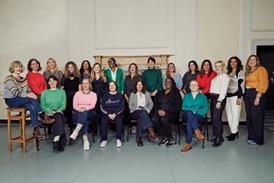
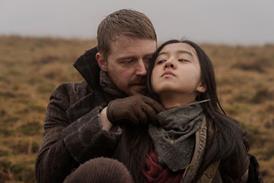


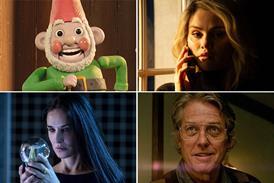



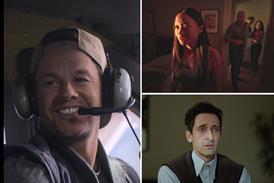
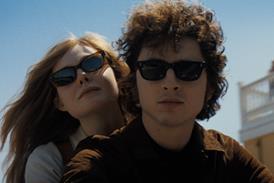
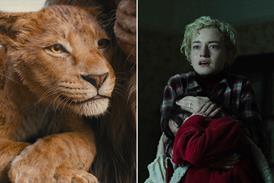
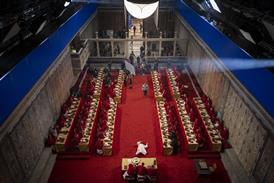
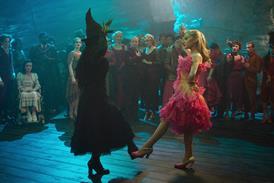
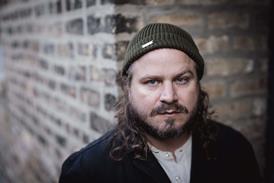







No comments yet